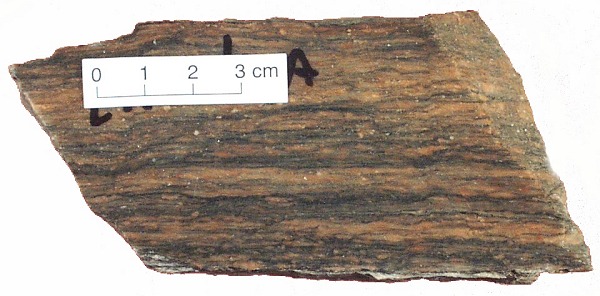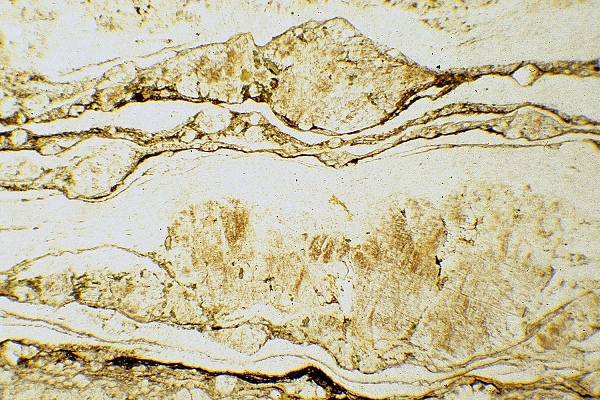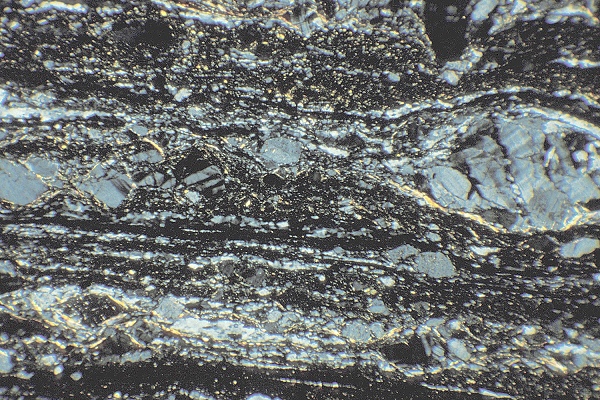
| Home | Geological History | Stratigraphy | Area map | Rock Index | About |
| Scourie | Achmelvich | Laxford | Clachtoll | Stoer | Assynt | Skiag Bridge | Glencoul | Knockan | Borralan | Ledmore |
From the Moine Thrust zone at Loch Eriboll, to the north of the Assynt area. Similar rocks are found along the Glencoul thrust plane.

![]() Mylonite formed from Lewisian Gneiss
Mylonite formed from Lewisian Gneiss
The Moine Thrust Zone contains a lot of Lewisian Gneiss,
especially in the Assynt area, and in places this too has
been converted into mylonite. Because it is much richer in
feldspar than the Moine Schists, the mylonite has a
different texture. Feldspar is more resistant to
deformation than quartz, and makes flattened pink lens
shapes in this rock. The fine banding wraps around them.

![]() Mylonite formed from Lewisian Gneiss
Mylonite formed from Lewisian Gneiss
Dusty feldspar makes up knobbly bands of strung-out larger
crystals, alternating with quartz-rich bands.
Plane polarized light. Field of view 7 mm across.

![]() Mylonite formed from Lewisian Gneiss
Mylonite formed from Lewisian Gneiss
The view between crossed polars shows the large fractured
feldspar crystals in lens-shaped layers. The bands in
between, made mostly of quartz, are in contrast very fine
grained. The bright streaks are strung-out bundles of mica
flakes.
Crossed polars. Field of view 7 mm across.
| Scourie | Achmelvich | Laxford | Clachtoll | Stoer | Assynt | Skiag Bridge | Glencoul | Knockan | Borralan | Ledmore |
| Home | Geological History | Stratigraphy | Area map | Rock Index | About |
D.J. Waters, Department of Earth Sciences, May 2003